Rubio resists Armenian lobby pressure, backs peace in South Caucasus Baseless accusations, confessed crimes
During a hearing before the House Foreign Affairs Committee on May 21, US Secretary of State Marco Rubio spoke on ongoing peace efforts between Azerbaijan and Armenia. His remarks came in response to pointed questions from Representatives Chris Smith (R-NJ) and Jim Costa (D-CA), both of whom adopted a narrative that closely mirrors long-standing, yet totally unsubstantiated, claims advanced by the Armenian lobby.
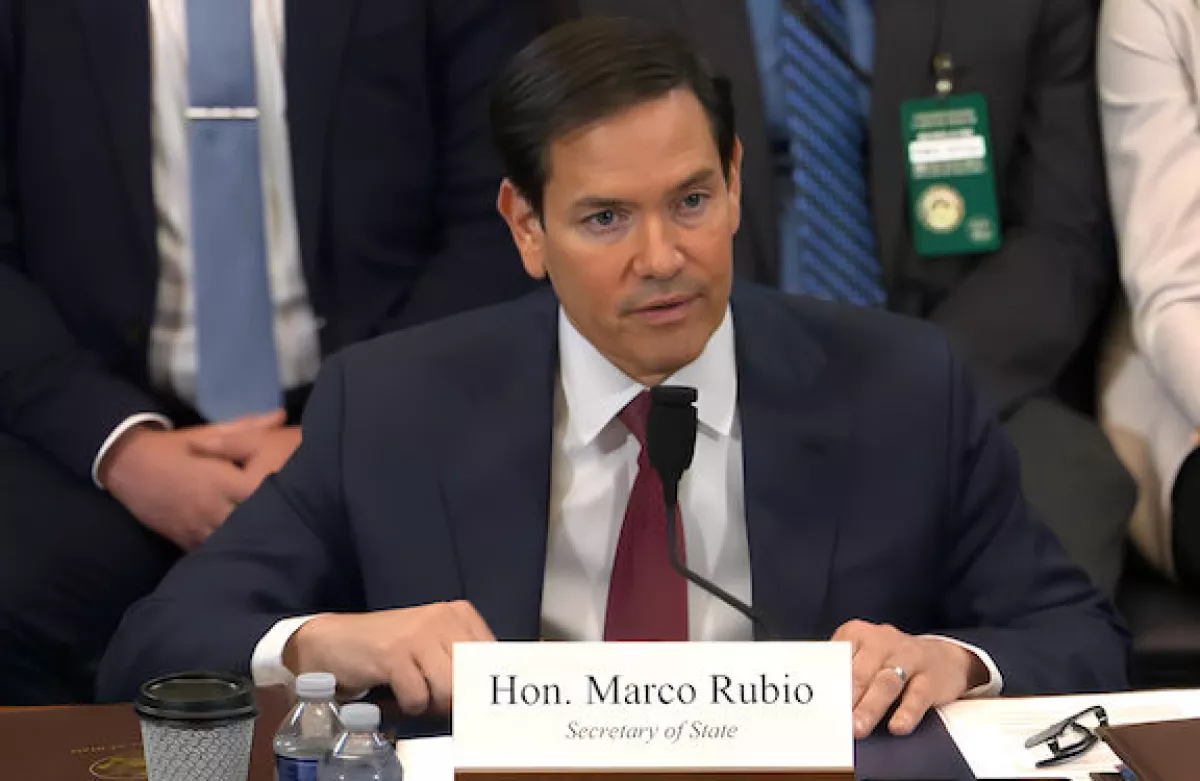
Rep. Smith went so far as to levy the familiar but baseless accusation that Azerbaijan had committed “genocide” in the Karabakh region. He also urged Secretary Rubio to intervene on behalf of Armenian “prisoners of war and political prisoners,” alleging they were being “horribly mistreated.” However, Smith failed to name any specific individuals and omitted the crucial context that those detained by Azerbaijan have been charged with serious offences—including war crimes, crimes against humanity, and terrorism—rather than being recognised as political prisoners under international legal standards.
A prominent example is the ongoing high-profile trial at the Baku Military Court involving former leaders and military commanders of the now-defunct separatist regime that operated for nearly three decades in Azerbaijan’s formerly occupied territories. Those on trial include three former “presidents” of the separatist entity—Arkadi Ghukasyan, Bako Sahakyan, and Arayik Harutyunyan—as well as the former “national assembly speaker” Davit Ishkhanyan, “state minister” Ruben Vardanyan, “defence army commander” Levon Mnatsakanyan, “deputy defence army commander” Davit Manukyan, and “foreign minister” David Babayan.
These individuals are being prosecuted on a range of grave charges: crimes against peace and humanity, war crimes—including the planning and execution of aggressive war—genocide, violations of the laws and customs of war, terrorism and its financing, forcible seizure and violent retention of power, and other serious offenses committed throughout the nearly 30-year illegal occupation of Azerbaijan’s internationally recognised territories.
ICJ debunks the claim of “horrible mistreatment”
Despite being portrayed by Armenian lobbyists as political prisoners, these individuals face criminal charges supported by substantial evidence, including eyewitness testimonies and documented war atrocities. A resolution by the Council of Europe clearly defines a political prisoner as someone detained “for purely political reasons without connection to any offence.” The resolution further specifies that “those deprived of their personal liberty for terrorist crimes shall not be considered political prisoners if they have been prosecuted and sentenced for such crimes according to national legislation” and the European Convention on Human Rights (European Treaty Series No. 5). This document obliges member states to uphold the right to a fair trial and outlines the conditions necessary to ensure this—which are being met in the ongoing trial in Baku.
Rep. Smith’s allegation of “horrible” mistreatment of detainees was effectively dismissed, especially following the International Court of Justice’s April ruling. The court rejected Armenia’s requests to investigate claims of poor treatment, confirming that Azerbaijan is handling detainees in full compliance with both domestic and international legal standards.
The statements by Smith and Costa were warmly received by the Armenian National Committee of America (ANCA), a prominent lobbying group seeking to influence US policy in favour of Armenian diaspora interests—interests that sometimes diverge from those of the Armenian state and population. ANCA welcomed Rubio’s recognition of detainee issues and praised both congressmen, who have a well-documented history of alignment with the Armenian lobby. While ANCA interpreted Rubio’s comments as a commitment to curtail further Azerbaijani actions, the Secretary of State remained neutral and measured, avoiding the trap set by Smith and Costa.
In response to Smith’s demands for the release of Armenian detainees, Rubio carefully sidestepped direct accusations against Azerbaijan. He acknowledged that the detainee issue is “critical” but emphasised that “Azerbaijan provides us an opportunity to do that in the context of the broader peace that we [the State Department] are trying to establish.”
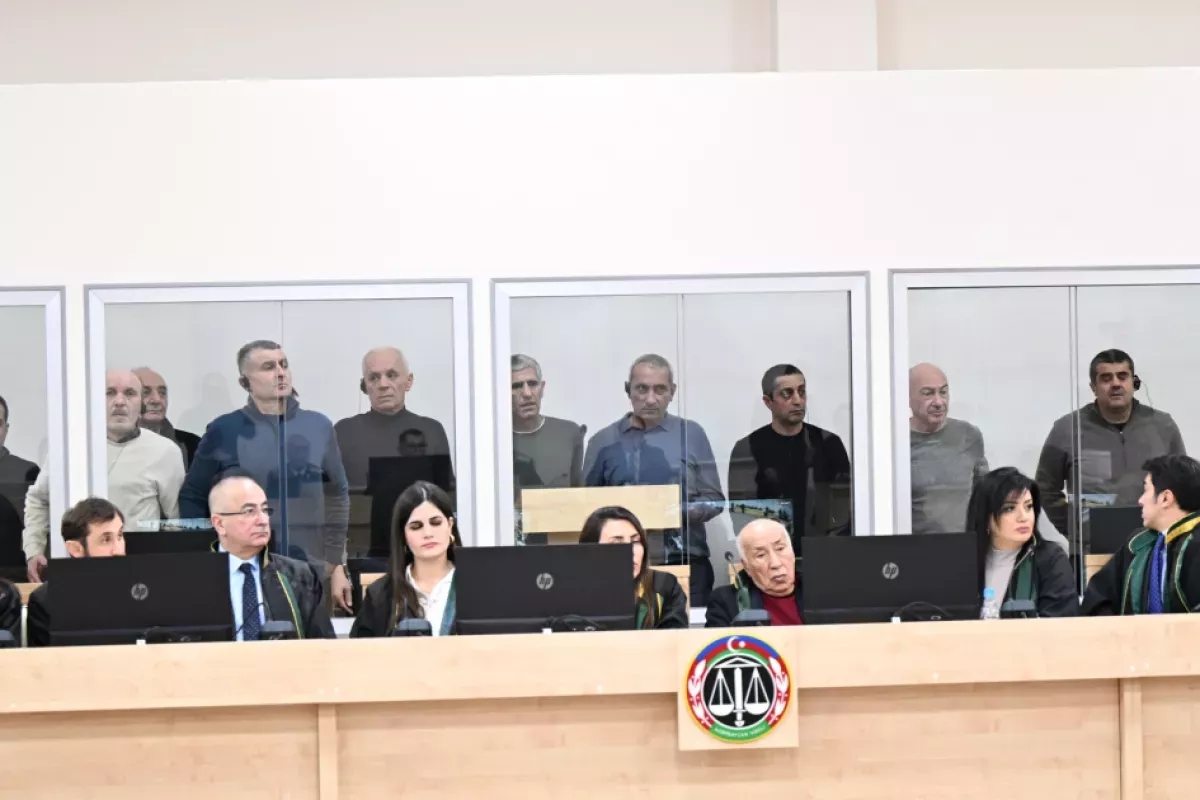
Key evidence presented in the ongoing Baku trials—which began on January 17—includes victim testimonies as well as photographic and video documentation, some of which has been independently verified by international organisations. A notable example is a 1994 report by Human Rights Watch, which documented war crimes during a fact-finding mission to Azerbaijan, Armenia, and the territories of the former Nagorno-Karabakh Autonomous Oblast (NKAO), an entity that existed within the Azerbaijan Soviet Socialist Republic until the dissolution of the USSR in 1991.
The trials in Baku also aim to establish the direct involvement of the Armenian state in the military operations carried out in Karabakh. Former “so-called” president Bako Sahakyan, in his testimony, admitted that the separatist regime in Karabakh was fully funded by Armenia and that its military units were structurally integrated into the Armenian Armed Forces. This admission underscores that the actions of the separatist leadership were not autonomous but part of a coordinated, state-level operation.
Regarding prisoners of war, Azerbaijan and Armenia have engaged in multiple exchanges over the years. The most recent exchange occurred in December 2023, when Azerbaijan released 32 Armenian soldiers in return for two Azerbaijani servicemen. These exchanges demonstrate a level of cooperation between the two sides, even amid ongoing political tensions. The individuals currently on trial are not being prosecuted for political reasons, but for specific and serious crimes. Their legal rights are being upheld under both Azerbaijani and international law.
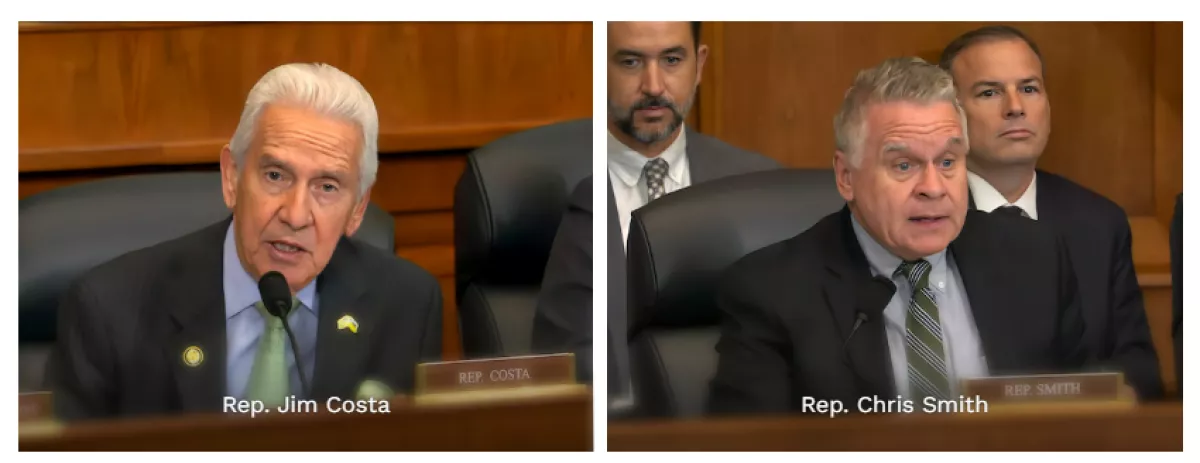
During the Senate hearing, Congressman Jim Costa echoed Rep. Smith’s anti-Azerbaijani rhetoric by calling for an end to US military assistance to Baku. He referenced the waiver of Section 907 of the Freedom Support Act—a measure set aside by the Biden administration—and urged Secretary Rubio to adopt a permanent policy of blocking aid to Azerbaijan. However, Rubio again resisted these thinly veiled lobbying efforts, clarifying that the State Department has “not made a determination on that yet” because its primary focus remains on securing a peace agreement between the two countries.
Rubio underscored the importance of avoiding a return to war, stating that his team has “tried to outline to both sides, especially the Azerbaijani side, the tremendous benefits that would come from signing a peace deal and not engaging in a war that we would find to be destructive, counterproductive, and the last thing we need right now in the region.” With this, Rubio effectively resisted attempts to steer US policy into an overtly anti-Azerbaijani stance, such as those seen during previous administrations.
UN testimony vs. baseless ethnic cleansing claims
Previous accusations by certain US lawmakers—such as claims of ethnic cleansing and an alleged blockade of the Lachin road—have been repeatedly refuted not only by Azerbaijani authorities but also by independent international organisations. In September 2023, Representative Chris Smith co-authored a bill with Congressman Jim Costa and others, accusing Azerbaijan of closing the Lachin road and carrying out ethnic cleansing against ethnic Armenians. Further amplifying these claims, in April 2025, Smith invited Artak Beglaryan—a representative of the now-dismantled separatist regime in Karabakh—to testify before a congressional hearing.
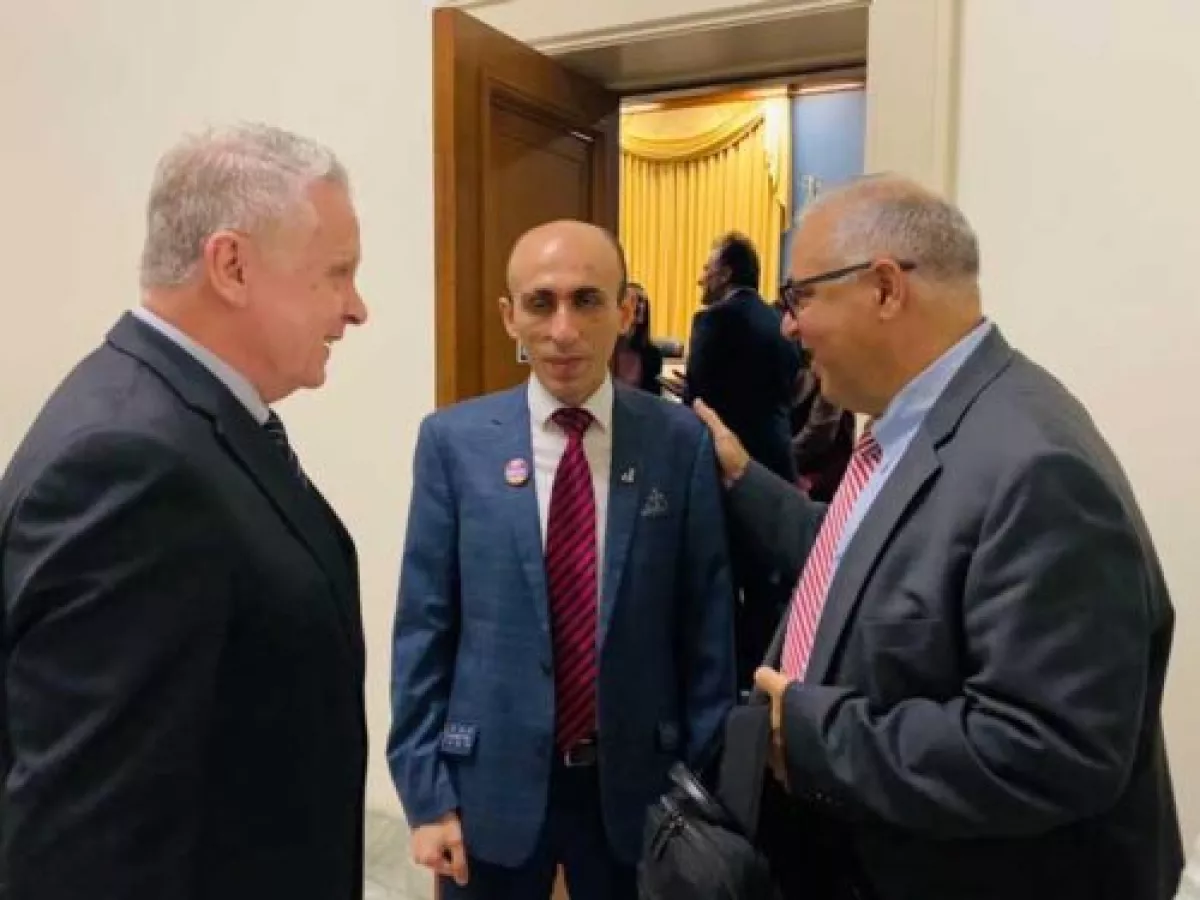
However, these allegations were contradicted by on-the-ground findings from a United Nations mission that visited the region in October 2023. The delegation, led by then-UN Resident Coordinator in Azerbaijan Vladanka Andreeva, reported that they had “not come across any reports – neither from the local population interviewed nor from the interlocutors - of incidences of violence against civilians following the latest ceasefire.” Moreover, the UN team noted that they “did not observe any destruction of agricultural infrastructure or dead animals from the road.”
Crucially, the UN mission also travelled the Lachin road itself—the route linking Shusha to Armenia via Khankendi and the town of Lachin—and confirmed that there were no signs of a blockade or obstruction, as had been repeatedly claimed by Armenian officials and advocacy groups. These findings directly discredit a well-orchestrated narrative pushed by Armenian lobbyists, which aimed to portray Azerbaijan as deliberately starving or isolating the ethnic Armenian population in Karabakh during 2023.
The Lachin road had long served as the primary route for ethnic Armenians travelling between Armenia and the formerly occupied territories of Azerbaijan. However, the unsubstantiated claims of its "closure" formed a central element of the broader disinformation campaign seeking to misrepresent Azerbaijan’s actions during the post-conflict stabilisation process.
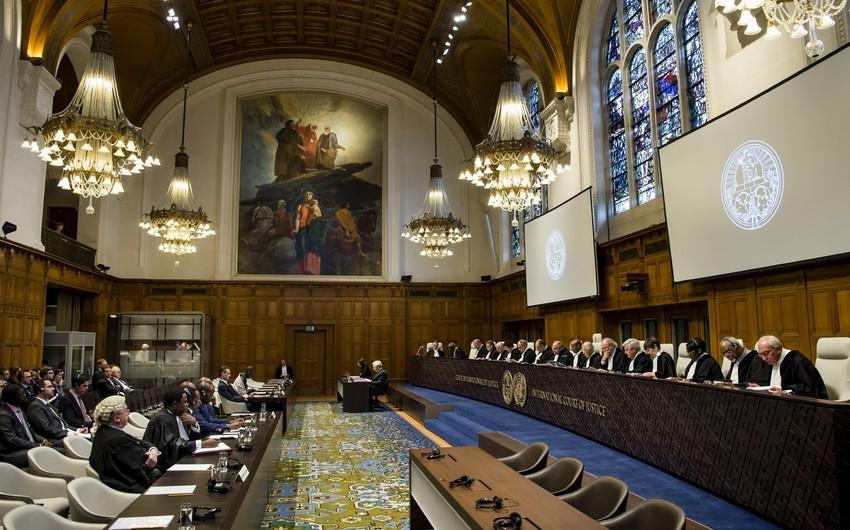
Azerbaijan has consistently rejected the allegations of obstructing movement along the Lachin corridor, and in July 2023, these claims were effectively discredited by a unanimous ruling of the International Court of Justice (ICJ). The Court found no evidence that Azerbaijan’s border checkpoint disrupted transit along the Lachin road or that Azerbaijan had violated the ICJ’s Order of 22 February 2023. Consequently, the Court denied Armenia’s request to amend that Order by imposing an additional provisional measure that would have required Azerbaijan to “withdraw any and all personnel deployed on or along the Lachin Corridor since 23 April 2023 and refrain from deploying any such personnel on or along the Lachin Corridor.”
This legal outcome significantly undermined Armenia’s narrative, confirming that Azerbaijan’s actions remained within the bounds of international law.
In parallel, US foreign policy—particularly under the leadership of President Donald Trump—has been oriented towards diplomacy and conflict resolution. Whether addressing crises in the Middle East, Ukraine, or the South Caucasus, the Trump administration has consistently advocated for peace through dialogue, economic engagement, and strategic partnerships. Within this framework, the emerging peace agreement between Armenia and Azerbaijan represents not only a critical step for regional reconciliation but also a potential model for broader international stability.
Efforts by Armenian lobbying groups and their allies in Congress to derail this progress were deftly countered during the recent House Foreign Affairs Committee hearing. Secretary of State Marco Rubio’s composed and balanced responses indicated that the US remains committed to supporting a peaceful resolution between Armenia and Azerbaijan. His refusal to adopt the inflammatory and unsubstantiated rhetoric promoted by Representatives Smith and Costa reflects a strategic choice to prioritise diplomacy over partisanship.
Rubio’s stance underscores a larger US interest: fostering long-term peace and cooperation in the South Caucasus, rather than fuelling tensions through lobbying-driven narratives that risk undermining hard-won diplomatic efforts.
By Nazrin Sadigova








